Schools invested thousands into academic program; 'Does it deliver?'

Schools invested thousands into academic program; 'Does it deliver?'
After a FOX6 investigation, Wauwatosa school leaders are re-evaluating their use of an academic program that costs thousands of dollars. They're not the only ones.
WAUWATOSA, Wis. - After a FOX6 investigation, Wauwatosa school leaders are re-evaluating their use of an academic program that costs thousands of dollars. They're not the only ones.
"We can’t continue to roll out programs that ultimately don’t work out in the schools," Wauwatosa school board member Shawn Rolland said. "And I think that’s what we found here. We rolled it out, and we rolled it out too broadly and it wasn’t, it wasn’t ultimately successful."
A FOX6 investigation revealed Wauwatosa assistant superintendent Kristin Bowers encouraged the district's adoption and later expansion of a program called AVID while the program was paying her husband. Bowers is now on paid administrative leave, an outside firm and Wauwatosa Police are investigating, and the district has paused its AVID expansion.
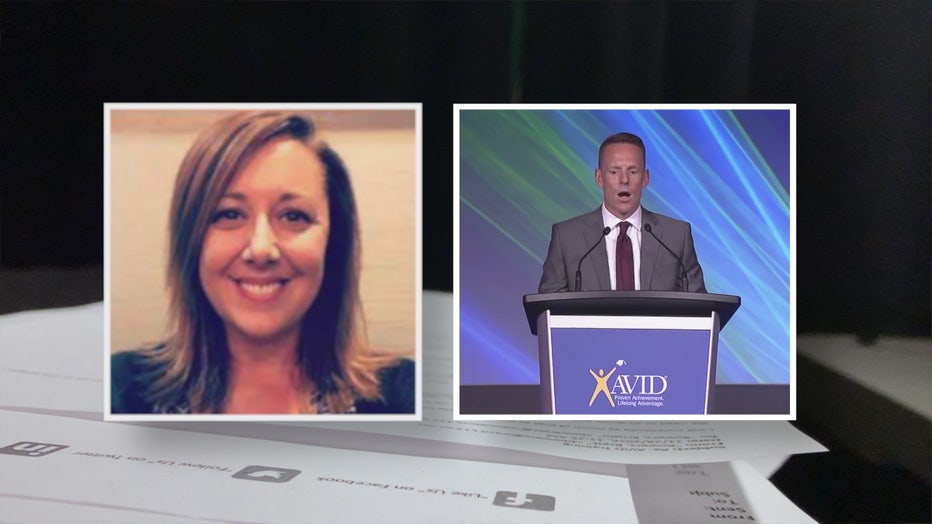
Now, school leaders are asking the question no one asked in public meetings ahead of the signing of the contract: Does AVID deliver?
What is AVID?
AVID, Advancement Via Individual Determination, is a nonprofit college and career readiness program. It markets itself as a way to "close the opportunity gap" in schools and improve equity.
In 2019, Wisconsin made headlines for having the nation's largest test score gap between black and white students. Historically, educators have referred to test score differences between white students and students of color as the "achievement gap." In recent years, there's been a shift to the term "opportunity gap;" educators say they want to draw attention to the differing obstacles and opportunities students experience, which are often out of their control, in their academic careers.
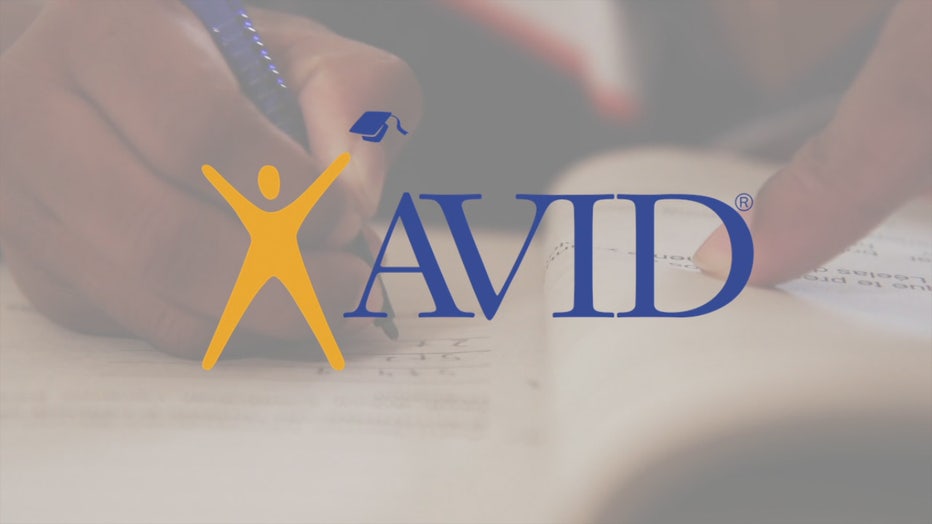
AVID representatives did not respond to interview requests. Its website claims the program is in 7,500 schools including, as of the 2017-2018 school year, 69 sites in Wisconsin.
The program is divided into "Big AVID" and "Little AVID." "Little AVID" is the elective class focused on study skills, tutoring, and the college application process. "Big AVID" is the schoolwide effort to implement those strategies into every classroom.
SIGN UP TODAY: Get daily headlines, breaking news emails from FOX6 News
School districts pay AVID for things like materials, licensing, and training.
At the beginning of 2021, Wauwatosa School District signed a three-year, $170,539 AVID contract.
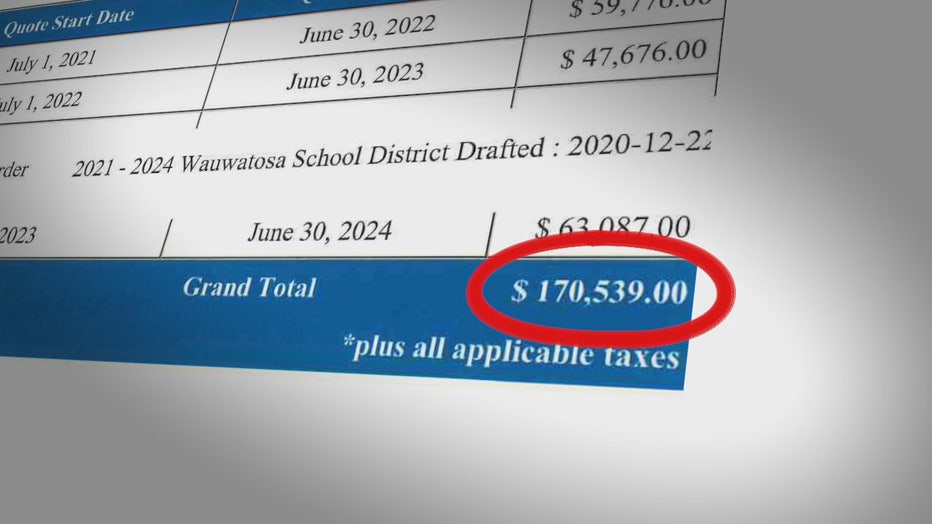
How it works
FOX6 asked educators enthusiastic about the program for on-camera interviews; they declined to speak on the record. Several said they like that AVID gives them a "common language" for instructional strategies in their school. They also believe it inspires confidence in students, and pushes teachers to re-think how they run their classrooms.
But other educators are more skeptical.
"The program doesn't do anything to close the achievement gap," an educator who asked to remain anonymous to protect their job said. "I never understood why it was sold as an equity tool intended to level the playing field for marginalized groups of students."
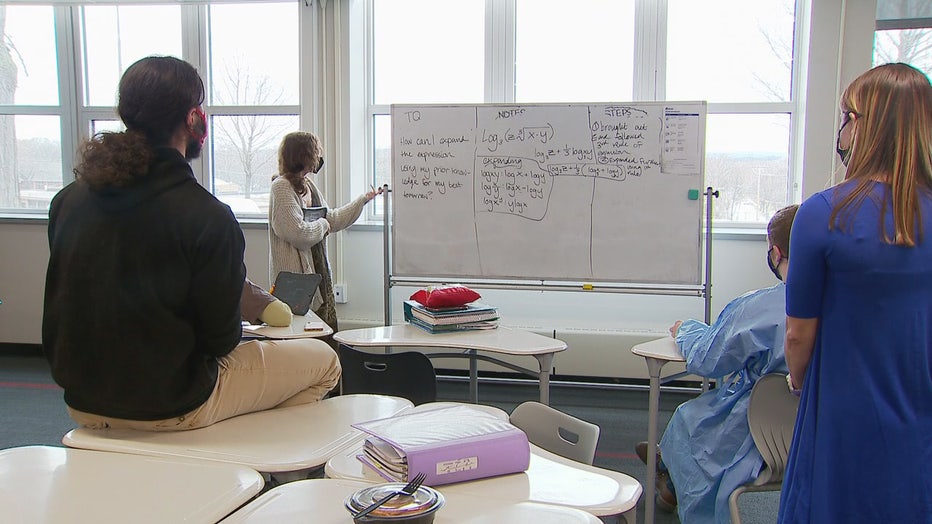
Retired Wauwatosa School District administrator David Dentinger, who worked with AVID both at a previous job and at Wauwatosa, says the program has strengths, but has questions about whether those benefits justify the cost.
"Can’t those things be done sort of DIY outside of AVID for a much lower price tag in a world of limited funds?" Dentinger asked.
Much of the skepticism surrounds not only AVID's cost, but also AVID's elective class. Students can't simply sign up to take it; they must apply.
Most school districts advertise the program as being focused on students in the "academic middle." In a September 2021 email, Wauwatosa superintendent Demond Means wrote that AVID students are "B and C" students who can maintain a minimum 2.5 GPA, with average to above-average test scores.
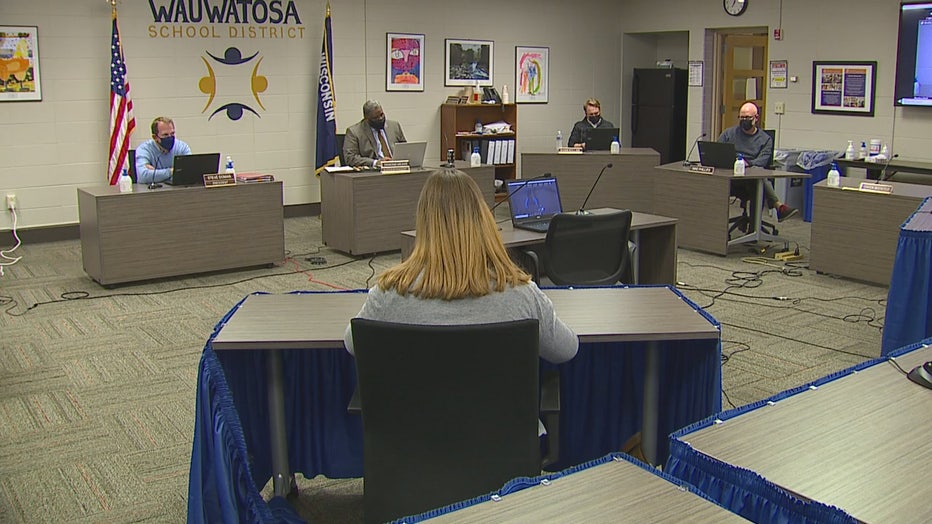
"Students in the AVID elective might also be the first in their family to attend college, be from a group underrepresented racially, culturally, or economically in colleges and universities, and have potential but may have special circumstances that could be obstacles to achievement," Means wrote.
Educators consider areas like students' applications, grades, test scores, teacher recommendations, interviews, and demographic information.
FREE DOWNLOAD: Get breaking news alerts in the FOX6 News app for iOS or Android
"And ultimately one of the questions is, ‘Do the students have the motivation to succeed?’" Dentinger said. "And if they have that motivation inherently, let’s put them in that program."
Wauwatosa emails discuss rejecting applicants because they are not the "right fit" for AVID. Public records show students of color are accepted into the class, but there are also students of color who show interest and ultimately not enrolled.
"Well then, so what happens with those kids?" Dentinger asked. "And aren’t we making a human decision, and ultimately are we making the right decision?"
The research
"The AVID model is to treat students in the academic middle," Jed Richardson, Wisconsin Evaluation Collaborative scientist, said. "And the academic studies of AVID as implemented in that way are generally positive, although few and far between."
AVID was founded in 1980. But as recently as 2010, the U.S. Department of Education’s What Works Clearinghouse found only one of 66 AVID studies met its quality standards.
As such, at the time the clearinghouse found AVID had "no discernible effects on adolescent literacy." AVID wrote a rebuttal, saying the report lacked proper context.
Since then, scientists have conducted more research on the program. Recent studies in Palm Beach and Osceola counties in Florida show academic gains for AVID students when compared to similar groups of non-AVID students.
Richardson studied Madison Metropolitan School District's AVID program, which works in conjunction with a mentoring program called TOPS that gives students support into their college years.
His research shows those AVID/TOPS students, when compared with similar non-AVID students in the district, went to college at higher rates, had higher GPAs, and took advanced classes more often.

"This does work in Madison, I think is a fair takeaway," Richardson said. "Whether what we’ve done is generalizable to other places in other contexts, that’s another question."
Richardson says it's difficult to parse how much of his findings can be attributed to AVID, and how much can be attributed to the TOPS program. And because AVID elective students apply to the class and are chosen in part based on their perceived inherent motivation, it's tough to figure out how much of the students' success is the direct result of AVID, or because they were already primed to succeed.
"The AVID students chose to be in the program," Richardson said. "And so there might be a characteristic of those students that we can’t observe in the data, something like how motivated the student is to attend college, how much the parents are pushing students to attend college."
But Richardson says for school districts implementing "Big AVID," the studies examining the effects of the AVID elective may actually be understating the program's academic gains; theoretically, the comparison group of students not in the AVID elective would also be benefiting from AVID's effects through the strategies teachers incorporate into their classrooms.
Richardson also points out that MMSD has been implementing AVID over a long period of time, and programs like it need time to show measurable results.
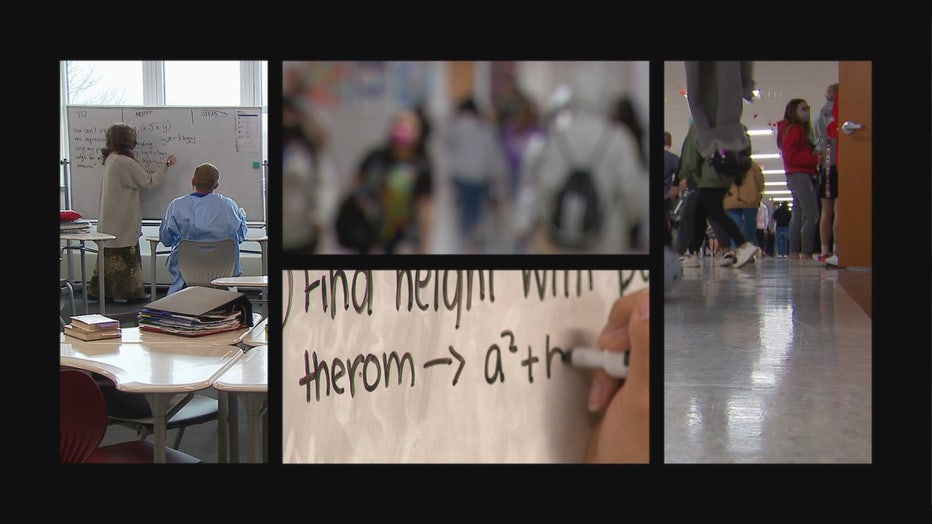
"These are gaps that are long-standing going back hundreds of years in our country," Richardson said. "It wasn’t that long ago that racial minorities were denied educational services in a systematic way."
"To ask of a single program that it would fix those gaps is a big ask," Richardson added. "That doesn’t mean these programs can’t contribute to the solution. Or even make large contributions to the solution, as we’ve seen in Madison."
Jenny Nagaoka, deputy director of the UChicago Consortium on School Research, studied AVID's effects on students in Chicago Public Schools.
"Students who had been in AVID were actually performing no better academically in their courses during their freshman year," Nagaoka said.
Nagaoka's research was published ten years ago; she says AVID has since evolved. But she also points out the program is now operating in a "more crowded space," giving school districts more options. She says by not accepting those who have lower grades or struggle with motivation, the AVID elective turns away the students who can be most impacted by inequities.
She also worries AVID's remaining focus on study skills and "individual determination" can distract from the root causes of inequities.
"The issues that students of color have if they’re in a predominantly white high school are not about a lack of study skills," Nagaoka said.
"Certainly study skills matter greatly," she continued. "But what matters even more, at least in our interpretation of these findings, was the question of environment…are these classroom environments where students feel supported, that they have a sense of belonging, that their teachers are actually there to help them be successful?"
Concerns in Wauwatosa
Katherine Riebe, who served on Wauwatosa School District's Equity Team, sent school board members an email with similar concerns.
"Once our kids feel safe and valued, I feel the academics will follow," Riebe told FOX6.
Even though the Equity Team recommended exploring the expansion of the AVID program in 2020, Riebe says the program never came up in Equity Team discussions. In fact, she says she never heard of the program until the board voted on the expansion in February 2021.
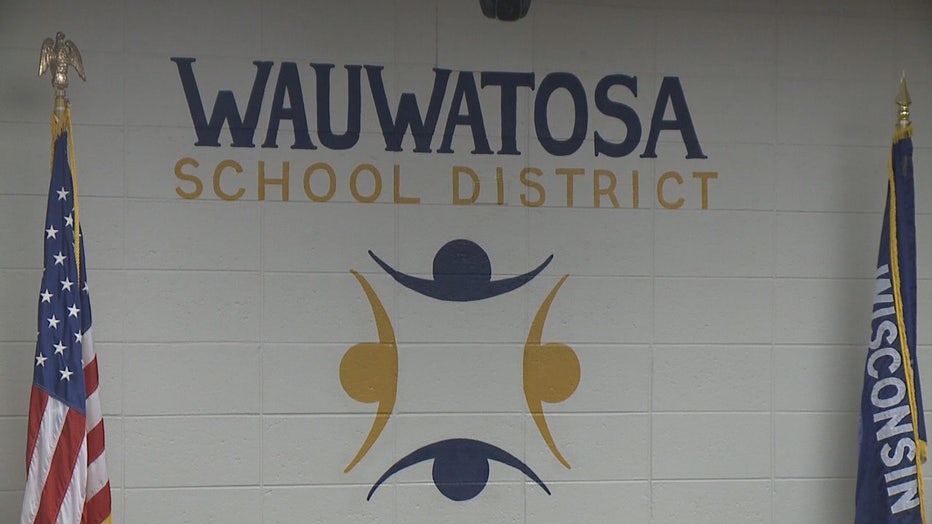
"I don't know how AVID got in the district's equity plan," another Equity Team member said, asking for anonymity to protect their job. "The committee didn't bring up AVID as an equity tool, because it isn't an equity tool…committee members had no idea what AVID was when they were working on developing the district equity plan."
Wauwatosa educators tell FOX6 the Equity Team reported in part to Kristin Bowers, whose husband, Brett Bowers, was working full-time for AVID.
The Bowers have not responded to repeated requests for comment.
The school board ultimately voted to expand the college readiness program before the students who took the elective in its first year had a chance to graduate and go to college. The public meetings with discussions about AVID prior to the vote to expand the contract contained no data about Wauwatosa student performance.
"I have no opinion either way about whether [AVID is] good or not," Riebe said. "But I do feel that as a school district - and it’s not just Wauwatosa - school districts seem to jump on these bandwagons every three or four years of something new. And they jump on it, and then something new comes out and they jump on that. My issue with that is these programs never bring the success or the achievements that are desired."
"I urged the district to spend that money instead on their teachers," Riebe added. "Attract and retain good teachers; the teachers that you have - train them, nurture them, value them. And in the overflow of what give our teachers, our children will benefit."
‘Time out’
AVID proponents say the supportive environment Nagaoka and Riebe reference is included in "Big AVID," in which classrooms throughout the school incorporate AVID strategies. But some schools have discovered implementing "Big AVID" is easier said than done.
"It’s had some missteps for us as a district," Deidre Roemer, West Allis-West Milwaukee School District Director of Leadership and Learning, said.
When WAWM started its AVID elective years ago, the intent was to grow into the "Big AVID" model and become an AVID school.
"We had sent a lot of teachers to an initial training," Roemer said. "We at that time had an instructional coach in the building. But the system itself wasn’t working hard to hold everyone accountable and provide additional opportunities for training and coaching…then you’ve spent a lot of time and money on something that’s not gonna have its foothold for all kids."
Making AVID a program that impacted the entire school took more resources than expected, which started to raise concerns about only offering the elective class.
"There’s that concern that you are cherry-picking in and amongst students," Roemer said. "For just one small group of the building to be doing that, that is where it started to say ‘Ooh, time out.'"
"It's not that every student needs to do everything that we offer," Roemer added. "But that there’s always the opportunity to join something."
Roemer says the district is still "investigating" how or if it will move forward with the program, noting the educators who teach the AVID class are passionate about it.
"So it’s not so much abandoning it, it’s ‘Does it still fit in what we’re trying to do for all kids?’" Roemer said.
"It is a very extensive program, and it’s a program that takes time and commitment," retired Wauwatosa administrator David Dentinger said. "If you don’t do it well, I think you’re going to be wasting money and time."

"Given shrinking funds, I don’t know how much districts can necessarily afford that when they might look at doing it themselves," he added.
After FOX6 filed open records requests about AVID, Wauwatosa School District started talking about walking the program back. In September 2021, superintendent Demond Means said he was exploring pushing "pause" on the AVID contract because the program was "too ambitious" and the district did not have the "professional capacity."
Even though the board had already voted on the contract, that meeting was the first time board members publicly asked questions like, "What is the problem being solved, and how is AVID doing that?" and "How are we going to measure results, and what does that look like?"
After FOX6 showed up at a board meeting asking questions, the district sent a message to parents saying it violated its policies in the procurement of AVID and announced it was pausing the program's expansion.
The day before FOX6's investigation aired, the district sent another message to parents, including a website with information about its ongoing investigation into the issue.
The district will still be on the hook for AVID services already received this year.
"I think that the right question is, ‘Are these programs working?’" Richardson said. "And I would push that a little further. For programs that aren’t actively trying to find out how and why they’re working, why aren’t you trying to figure that out?"
Featured
Marcus Theatres vaccination-required shows at select locations
Marcus Theatres is offering vaccination-required shows at select theatres starting on Friday, Nov. 19.
Featured
Wisconsin 2022 state park passes on sale Nov. 26
The Wisconsin Department of Natural Resources announced Wednesday that the 2022 state park and forest admission passes will go on sale Nov. 26.



